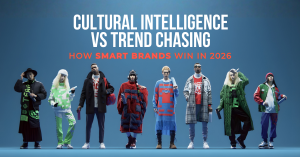The African market is booming, and brands looking to make an impact must understand one crucial fact: authenticity is everything. Copy-pasting strategies from the U.S. or Europe won’t work here. African audiences crave relatability, representation, and cultural relevance – without it, even the biggest campaigns won’t garner much attention, nor the desired engagement.
Why Authenticity Matters (And Why Tyla Gets It)
African consumers are highly perceptive—they see through inauthenticity in an instant. They don’t just want to buy a product; they want to see themselves in the brands they support. A prime example is South African singer Tyla, whose global appeal is rooted in her authenticity. From proudly showcasing her love for pap, chutney, and wors to embracing her roots, she connects with audiences on a deeper level. That’s the power of real storytelling.
The Blueprint for Authentic Influencer Marketing
To truly resonate, brands must move beyond transactional influencer relationships. Here’s how to do it right:
- Show & Tell (Brand Attribute Evaluation): An influencer in Lagos doesn’t just list a smartphone’s specs—they show how it helps them navigate the city’s energy, from booking a ride to capturing everyday moments.
- Love Story (Brand Love Inspiration): A Nairobi-based influencer doesn’t just wear a local fashion brand—they share its impact, taking their audience behind the scenes to meet the artisans.
- Mirror, Mirror (Self-Identity Construction): An entrepreneur in Accra doesn’t just talk about business success—they share struggles and wins, building a relatable community for their followers.
- Community Vibes (Community Building): Engagement goes beyond likes. The best influencers foster discussions, host live sessions, and build real relationships.
Finding the Right Influencers: Spot the Real, Ditch the Fake
Numbers alone don’t tell the full story. Look for influencers who:
- Are transparent about brand partnerships
- Show genuine enthusiasm for what they promote
- Engage meaningfully with their audience
- Reflect the culture and lifestyle of their followers
- Respect cultural nuances and avoid stereotypes
A commenter on a recent LinkedIn discussion put it: “Brands often evaluate content through their own lens instead of aligning with what the audience actually engages with.” That’s the ‘polish’ trap—where overly curated, detached content misses the mark.
Navigating Challenges in the African Market
The landscape comes with its own set of challenges, but brands that acknowledge and adapt will win:
- Connectivity Gaps: Not all consumers have high-speed internet. Create content that’s data-friendly and accessible.
- Cultural Sensitivity: Avoid cultural appropriation. Do your research, collaborate with local voices, and be respectful.
- Breaking Stereotypes: Africa is diverse—don’t generalise. Celebrate the continent’s vibrancy in all its complexity.
The Bottom Line: Why Authenticity Wins
Authentic influencer marketing isn’t just a buzzword—it’s a growth strategy. It drives:
- Brand Awareness
- Trust & Credibility
- High Engagement
- Increased Sales
- Long-Term Loyalty
The Takeaway: Do the Work, Reap the Results
To win in Africa, brands must do more than just show up—they need to show up right. That means understanding the audience, partnering with influencers who truly connect with their social audience, and crafting narratives that resonate with the archetypes. Be bold, be creative, but above all—be real. Because in Africa, authenticity isn’t optional—it’s the game-changer.




